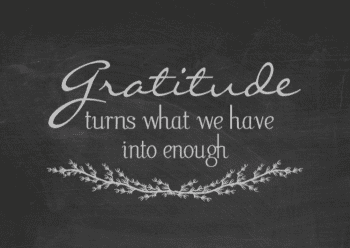Being at peace is easy when everything goes as expected. But life has its own way. Many times negative emotions or adverse situations can upset and shake you real bad, almost causing an inner ruckus, driving you insane, they can make you say things you wish you had not, they can overpower you making you do things you would rather not. This is further aggravated by a feeling of guilt, a sense of helplessness, after you have calmed down. A while ago I wrote about overcoming negative thoughts and emotions. Allow me to expand on it for you.
A surge of rush, of anxiety, a tide in your inner world prompts you to take action in the external world.
Contrary to popular belief, your inner world is not entirely independent of the external one, not until you reach the transcendental state anyway. However, you can control the response you choose in any situation. For example, you are on the road and a rash driver overtakes you dangerously. Your adrenal glands start secreting and you are tempted to give it back to the driver. Your emotional and mental state will be affected a lot more by your reaction than just his action. You have practically no choice when it comes to his actions but you have complete freedom over your own.
A controlled physical response is the easy bit. It requires awareness and fortitude. If someone yells at you, with your own mindfulness you can remind yourself not to shout back, for instance. Easy. Well, almost. What to do though when it is not about some action but emotion? How to get over the mental doom and gloom that engulfs you, especially if you held back in the aforesaid situation? What to do when someone’s negative opinion about you bothers you, their thoughtless statement causes you grief, their misconduct makes you feel bad? How to be at peace? Read on.
Your inner world is made up of thoughts and it is affected by your emotional state and your state of consciousness. If you let the thoughts settle, emotions settle too. It is like cutting the gas supply to the engine, it will shut down automatically. If you can channelize and harmonize your thoughts, undesirable emotions will disappear like bubbles in a fizzy drink, bringing you to peace. Let me share one of the most powerful methods with you; with the help of a story:
“I try very hard to control myself, my anger and my negative emotions but they always win over me,” a disciple once said to Buddha. “O Venerable One! how do I overcome this weakness of mine?”
Buddha ignored his question and kept moving. After a while, he sat down in the lotus posture under a banyan tree and spoke, “I’m thirsty. Can you get me some water from the river?”
Eager to serve his master, the disciple moved towards the river at once. Before he could lower the bowl and fill it, a man with a bullock cart started crossing the shallow river. The water became turbid. Dismayed, the disciple went back empty-handed. “The water is muddy and unfit for drinking as a bullock cart just crossed the river.”
Buddha nodded. After a little while, he asked the disciple to try again. The water was still murky and he came back empty-handed again. “It was less muddy,” he said, “but still unsuitable for drinking.”
Buddha maintained quietude for half an hour before instructing him again. The disciple was pleased to find clear water this time; the mud and other particles had settled down. He filled the bowl with water and went back to the master.
With utmost mindfulness, Buddha took a few sips. He put the bowl down and said, “You see, when the water got muddy, the easiest method to clean it was to let it be. Had you made any attempt to clear it at the time, it would have ended up worse. You just let it be, you simply waited and the mud settled down on its own. Other than patience, there was no effort. Similarly, when your mind is greatly disturbed just let it be. It’ll calm down, it’ll settle in due course, give it a little time, be patient.”
So, when you are bogged down by a disturbing or undesirable streak of thoughts, first be aware that it is muddy and secondly, let it be. Give it time to settle down. Do not act on it right away. Have a bit of self-dialog; tell your mind that you are aware it is upset, it is unsettled. It will change the drift of your thoughts. That said, it will greatly help your cause if you get rid of the mud altogether eventually. The water will stay pristine thereafter, your mind will be clear and free of contamination. It will be at peace. I read somewhere,
Patience is being at peace with the process of life.
With practice, you can strengthen and insulate your inner world to such a level that it remains unmoved, unfazed, unsullied, no matter what. Meditation, serving mankind, good karma, gratitude, and being positive are some of the methods that help you get rid of the impurities; you can add praying to the list if you wish. It will help you be at peace.
Be aware when it is muddy and then let it be for a little while. Those are the moments of non-action. Let the hurricane of emotions pass. For your own peace of mind, do not act when you are feeling negative.
A step taken in a state of emotional turmoil is like snorkeling without your mask, in salty water at that. All things, when left alone, return to their natural state.
Peace.
Swami
Editorial Note
When we allow our minds to settle, our emotions settle too. If you are still wondering, ‘Why am I so emotional’, the following FAQs will help you with emotion management strategies. Find more tools, including the practice of that most profound state – gratitude — to help manage your emotions effectively. Stop asking ‘how?’. Find the answers below:
Why am I so emotional at the death of a loved one?

An unsuccessful quest for happiness arises from one’s inability to segregate the cause of happiness from the source of it. The cause is always us. When we forget this, we look outside at objects and people to bring happiness to our lives.
Managing emotions after encountering a loss can be tricky. But in dealing with your loss, the greatest affirmation you can give to yourself is the knowledge that you were okay before you had what you may have lost today. And, if you remain open to the possibilities, you’ll be okay after a while too.
Continue reading here a beautiful anecdote about Mahavira and the emotional woman who lost both her husband and only child in a fire. Why suffer now when you were happy without them earlier, he asks.
Is gratitude an effective emotion management strategy?
Often, people think that their life ought to be a certain way before they can be grateful. A mistake. Why? Well, instead, you start being grateful and your life will become a certain way. Try it to believe me. Imagine it’s raining pretty hard. Desire is wishing for the rain to stop and gratitude is carrying an umbrella. If peace is the seed of happiness, gratitude is the womb that carries it.

Gratitude is not a promise of the future but a commitment to the present. Peace is a choice, an option, a path. Being grateful is the easiest way to be peaceful and manage your emotions.
Read more here on how gratitude gives us perspective.
Why is gratitude considered so important in handling emotions?
The absence of something dictates the value of its presence.

Yes, life can be overwhelming sometimes and handling your emotions may get the better of you. But just think again about all that is sometimes taken for granted. Why, just watch that breath! It is precious. That life of yours is priceless. And this moment, this very moment, now: a wonderful present. I speak about the contrast between my time in the Himalayan woods and my hut in the ashram here. Be grateful. I am. Very.
I struggle with managing emotions daily, breaking down frequently and feeling an emptiness inside. Am I suffering from depression?
You may find yourself constantly asking, “Why am I so emotional?” The truth is, depression is a state of mind. It is not a physical ailment; it is not a neurological disorder and it is rarely a malfunctioning of the brain. It is strictly a condition of the mind. And the mind pervades your whole body and beyond.
The severity of the depression can be ascertained from the symptoms of the patient. While I am using the term patient, that truly is an oxymoron. There really cannot be a ‘patient’ for depression because it is not a ‘disease’ that one can suffer from. In order to correctly adjudge the severity of depression, please go through this section carefully and patiently. Why? Because we are dealing with a complex subject.
A GOOD STORY
There were four members in a household. Everybody, Somebody, Anybody and Nobody. A bill was overdue. Everybody thought Somebody would do it. Anybody could have done it but Nobody did it.
Don't leave empty-handed, consider contributing.It's a good thing to do today.









Comments & Discussion
16 COMMENTS
Please login to read members' comments and participate in the discussion.